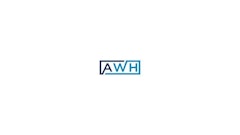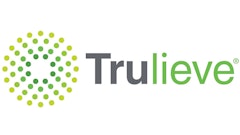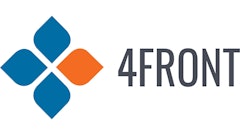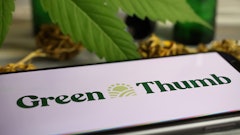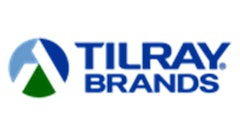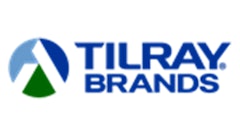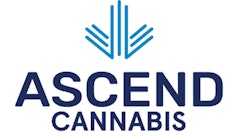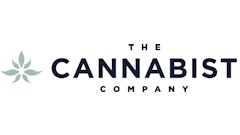For the cannabis industry, Q3 2020 marked somewhat of a return to normalcy. Most multi-state operators (MSOs) saw an increase in both net and gross revenue, while also reigning in costs. And while a Democratic victory in November’s election is bringing some optimism to the field, experts and industry execs agree there is still a long road ahead to market maturity.
Cannabis Business Times and Cannabis Dispensary spoke with leadership at the industry’s largest companies for a snapshot of this quarter’s results and the industry’s position as a whole moving into the final quarter of 2020.
Green Thumb Industries (GTI)
Chicago, Ill.
Q3 Revenue: $157.1 million (131.1% year-over-year increase)
Net Income: $9.6 million adjusted net income
Highlights:
Green Thumb continued strong business in its home state of Illinois as well as New Jersey, Pennsylvania and Ohio. After a slight decline in Massachusetts and Nevada following the initial COVID-19 outbreak, GTI’s revenues in those states have rebounded.
For the first time in its history, the MSO that owns 50 retail locations in ten different states also posted a positive net income.
“The third quarter was an excellent quarter for Green Thumb,” said Ben Kovler, CEO of GTI. “We are poised to further benefit from the strong tailwinds driving a robust, multi-billion-dollar marketplace.” Kovler also pointed to the company’s strong position in New Jersey—where voters overwhelmingly approved legalization in the election—as a corporate asset in the coming years.
“New Jersey is great news for us as we think that legal market has the potential to mirror Illinois—a single state, multi-billion dollar legal cannabis market about to be born,” Kovler said.
Other notable quarterly activities included the expansion of the company’s popular incredibles brand in Illinois, Nevada and Maryland, progress on construction of a new plant in Oglesby, Illinois, and the opening of GTI’s 13th store in Pennsylvania and eighth store in Illinois.
To help advance equity in cannabis, Green Thumb continued to promote and develop its License Education Assistance Program (LEAP) New Business Accelerator, a social equity program designed to improve access to the industry for people in Illinois disproportionately impacted by prohibition.
Acreage Holdings
New York, N.Y.
Q3 Revenue: $31.7 million (42% year-over-year increase)
Net Income: $14.3 million adjusted net loss
Highlights:
Acreage is an MSO concentrated heavily across the Northeast, with retail locations in New York, New Jersey, Rhode Island, Massachusetts and Connecticut. Now that Americans have grown somewhat accustomed to the impact of COVID-19, the company saw rebounding numbers—partner revenue increased 79% year-over-year in Q3, while same-store sales growth for managed entities came in at 22%.
“Operational excellence led to improved financials and a stronger balance sheet,” said Bill Van Faasen, Acreage’s interim CEO. “Our core profitability is in sight in the first half of 2021. Much work remains, but we are absolutely on the right path both short and long-term.”
Acreage also has a strong position in New Jersey—it closed on the purchase of the Compassionate Care Foundation, a major vertically-integrated cannabis company that operates multiple medical cannabis dispensaries in the Garden State and one of the state’s largest grows.
But arguably the largest event on the horizon for Acreage—an already-agreed-to merger with Canopy Growth to occur as soon as the U.S. federally legalizes cannabis—is still shrouded in an uncertain timeline. President-elect Joe Biden is expected to loosen legal restrictions on cannabis but stop short of full legalization, raising the possibility that the Acreage-Canopy merger may be four more years away, at minimum.
Additionally, Seeking Alpha reported Acreage’s “lack of scale in any individual state” could be a hindrance to its performance going forward, pointing out that the company had just one or two locations in major markets like Florida, Massachusetts and Illinois.
Canopy Growth
Smiths Falls, ON
Q3 Revenue (Q2 2021 in Canada): $124 million (CAD, 39% year-over-year increase)
Net Income: $96.6 million net loss
Highlights:
In Q3, Canopy Growth continued its dominance of the Canadian cannabis industry. Its well-publicized 2020 strategic adjustment following some corporate downsizing earlier in the year seems to have paid off—according to internal numbers, the Ontario giant increased its market share in the Canadian recreational market by 200 basis points.
“In Canopy Growth’s second quarter, we saw our renewed strategy come to life as momentum built across key businesses,” said David Klein, CEO of Canopy Growth, in an email. “We established the leadership position in the cannabis-infused beverage segment with over 2 million units shipped since March, grew our market share in the flower category, and opened nine new retail stores in Alberta.”
Canopy’s dominance in the beverages sector is not much of a surprise when you consider its backers. In 2017, beverage conglomerate Constellation Brands purchased a 10% stake in Canopy. Earlier this year, Constellation—which also owns major alcohol brands like Corona, Modelo, and Svedka—upped its equity in Canopy to 38.6%, with the option to increase it to over 55%.
But while Canopy continues to dominate up north, questions about its access to the U.S. cannabis market remain. Though it has a new online store to sell CBD to Americans—including a popular line sponsored by Martha Stewart—Canopy doesn’t have the same iron-clad grip on the market in the states.
In an effort to further penetrate the U.S. industry, Canopy announced in October that Acreage Holdings would be marketing its THC beverages at recreational shops in Illinois and California. Canopy also owns the sports nutrition brand BioSteel, which recently finalized distribution agreements allowing it to offer electrolyte-filled sports drinks to 100% of the American market by 2021.














